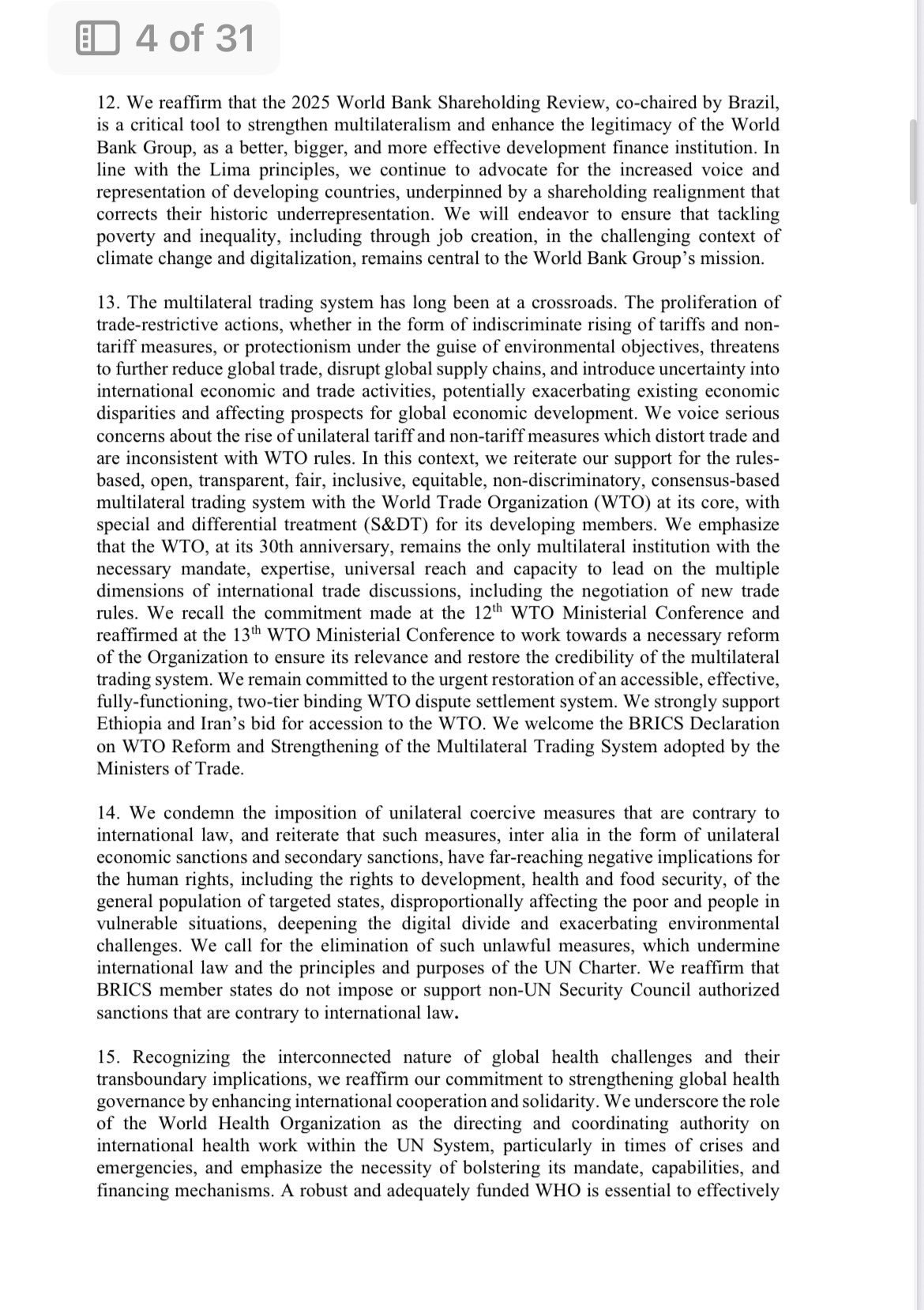Sharp criticisms of rising tariffs, global militarisation, and regional aggression framed the concluding declaration of the BRICS summit held in Brasilia on Sunday, with the bloc voicing strong disapproval of recent geopolitical developments that it said endangered global peace and economic stability.
While refraining from naming the United States directly, BRICS condemned unilateral tariff hikes and warned that such moves “threaten to reduce global trade, disrupt global supply chains, and introduce uncertainty.” The declaration further noted that such restrictions were “not consistently in line with the rules of the World Trade Organisation.”

The statement came just days after US President Donald Trump threatened to impose a 100 per cent tariff on BRICS nations should they make any move towards de-dollarisation, a long-standing proposal championed by China and Russia.
The group also criticised the recent escalation of violence in the Middle East, pointedly condemning Israeli military operations in Gaza, Lebanon, Syria, and Iran. Without directly naming Israel, the bloc expressed concern over what it described as disproportionate use of force and civilian casualties.
Brazil’s President Luiz Inacio Lula da Silva, who hosted this year’s summit, opened proceedings with a sharp rebuke of military spending among Western nations. “It is always easier to invest in war than in peace,” he said, criticising NATO’s plan to increase defence budgets by five per cent of GDP annually until 2035.
Also read: Trump threatens 10% extra tariff on nations ‘aligning’ with BRICS
The summit, however, was marked by the absence of key leaders, President Xi Jinping of China and Russian President Vladimir Putin. While Xi gave no official reason for staying away, Putin continues to avoid international travel after an arrest warrant was issued by the International Criminal Court in connection with the Ukraine conflict.
Despite skipping the event, both China and Russia featured prominently in the summit’s discussions. While BRICS reiterated its hope for a peaceful resolution to the Ukraine war, it stopped short of criticising Moscow, underlining the bloc’s continued diplomatic alignment.
Founded in 2009 by Brazil, Russia, India, and China—and joined by South Africa in 2010—BRICS has positioned itself as a voice for the Global South. Last year, the group expanded to include Indonesia, Iran, Egypt, Ethiopia, and the United Arab Emirates. It also created a “strategic partner” category, now including Belarus, Cuba, and Vietnam.
The question of alternative currency frameworks to challenge the dominance of the US dollar in global trade remains under consideration, although no formal agreement was reached. Russia first raised the proposal during last year’s summit.
The meeting concluded with a reaffirmation of multilateralism, development cooperation, and sovereign equality among nations. “This remains the best opportunity for emerging countries to shape the global agenda,” read the final line of the declaration.



